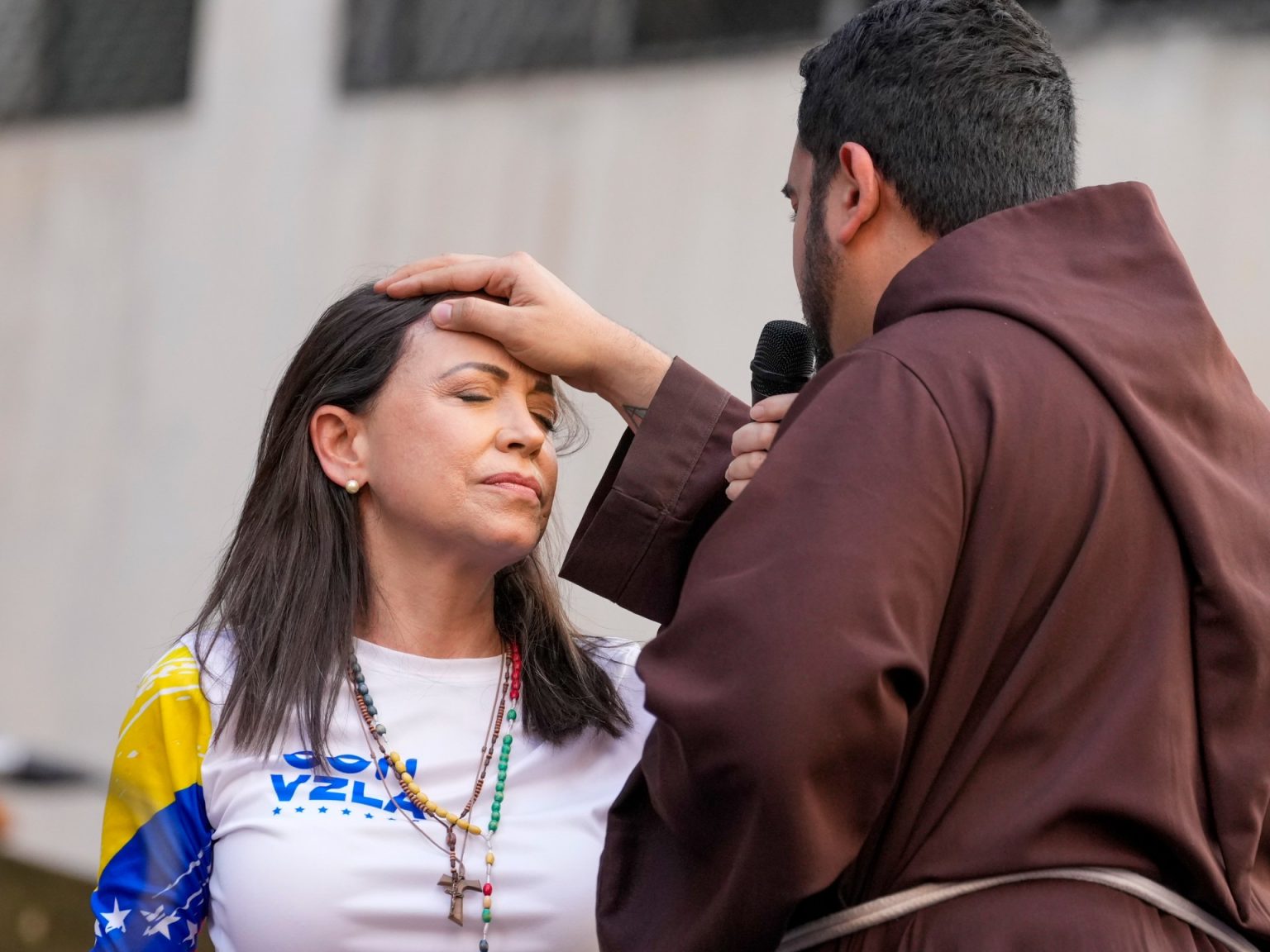The re-emergence and subsequent arrest of Venezuelan opposition leader Maria Corina Machado on January 9, 2025, injected a fresh wave of tension into the volatile political landscape of Venezuela, just a day before Nicolas Maduro’s controversial third presidential inauguration. Machado, the leader of the opposition group Comando Con Venezuela, had remained in hiding for months following the disputed July 28 election and the government’s ensuing crackdown on dissent. Her public appearance at a protest in Chacao, where she called for resistance against Maduro’s continued rule, was met with a swift response from government forces, who reportedly fired upon her motorcycle escort during her arrest. This dramatic turn of events underscores the deep political divisions and ongoing struggle for power in the South American nation.
Machado’s decision to surface publicly, despite the looming threat of arrest, reflects the opposition’s unwavering determination to challenge Maduro’s legitimacy and demand a democratic transition. Her presence at the protest, where she addressed a crowd of supporters, waving the Venezuelan flag and decrying the government’s attempts to sow discord, was a symbolic act of defiance. The demonstration, though smaller than previous anti-government rallies due to widespread fear of reprisals, served as a testament to the persistent resistance against Maduro’s authoritarian rule. The chants of “We are not afraid!” and the singing of the national anthem resonated with the spirit of opposition that had been simmering beneath the surface since the contested election.
The July 28 election, which the electoral authority declared Maduro the victor without providing detailed voting data, was widely denounced by the opposition as fraudulent. The opposition, citing their own compiled voting tallies, proclaimed their candidate, Edmundo Gonzalez, the rightful winner. This contested outcome ignited widespread protests, met with a harsh government crackdown resulting in the arrest of over 2,000 people and an estimated 25 deaths. The government’s response further fueled the opposition’s claims of authoritarianism and repression, solidifying the political divide.
Maduro has accused Machado of orchestrating a conspiracy against him, further escalating the tensions. The September issuance of an arrest warrant for Gonzalez, who sought asylum in Spain before embarking on a tour of various countries to garner support for his claim to the presidency, further complicated the political landscape. Gonzalez’s pledge to return to Venezuela, coupled with the government’s $100,000 bounty for information on his whereabouts, adds another layer of intrigue and uncertainty to the pre-inauguration atmosphere. His public demand for Machado’s release, directed at the security forces, further amplifies the opposition’s voice and underscores the high stakes of the ongoing political struggle.
Machado’s arrest highlights the ongoing suppression of dissent in Venezuela. Her defiance in the face of repeated threats and previous attempts to detain her underscores the depth of opposition to Maduro’s rule. While the turnout at the protest was smaller than in previous demonstrations, likely due to the heavy presence of riot police and the pervasive fear of government reprisals, it still represents a significant act of resistance. The fear expressed by some citizens attending the protest, as witnessed by journalists on the ground, reveals the chilling effect of the government’s crackdown on dissent.
The political climate in Venezuela remains highly charged, with the opposition continuing to challenge Maduro’s legitimacy even as he prepares for his third inauguration. The arrest of Maria Corina Machado symbolizes the ongoing struggle for democracy and the resilience of the opposition movement. The international community watches with concern, as the future of Venezuela hangs in the balance. The interplay between a determined opposition, a government employing repressive tactics, and a deeply polarized populace sets the stage for a potentially tumultuous period in the country’s history. The demand for Machado’s release echoes not just within Venezuela but also from international observers concerned about the suppression of political dissent and the erosion of democratic processes. The coming days and weeks will be crucial in determining the trajectory of this political crisis.

